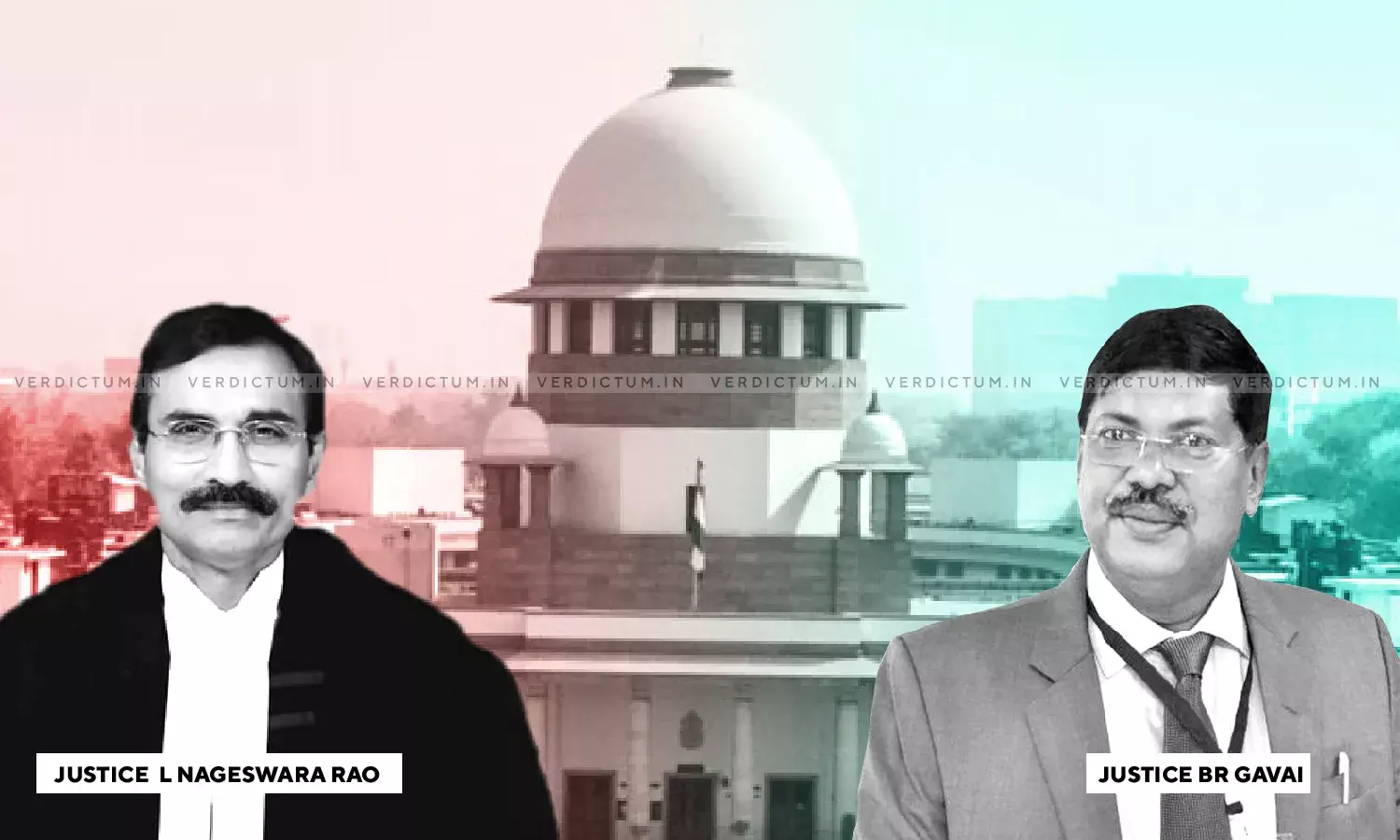Conviction Solely On Basis Of Extra Judicial Confession Without Corroboration Not Justified – SC While Acquitting Army Officer

A two-judge Bench of Justice L Nageswara Rao & J BR Gavai while acquitting an army officer convicted on the charges of corruption held in a judgment rendered on April 4th that conviction solely on the basis of extra-judicial confession without corroboration is not justified.
The Court in this context, observed –
"It could thus be seen that the extrajudicial confession is a weak piece of evidence. Unless such a confession is found to be voluntary, trustworthy and reliable, the conviction solely on the basis of the same, without corroboration, would not be justified."
In this case, two cross objection appeals were filed before the Supreme Court assailing the orders passed by the Armed Forces Tribunal, Regional Bench, Kochi. The first appeal was preferred by the Union of India and others challenging the part of the judgment passed by the AFT in which the Tribunal has set aside the conviction under Section 7 of the Prevention of Corruption Act read with Section 69 of the Army Act and in turn sentenced the Army personnel to the punishment of forfeiture of seniority of the rank of Major.
The AFT had also directed that the Respondent – Officer shall be reinstated in service with no pay and allowance for the period he remained out of service. The other appeal was preferred by the Respondent – Officer aggrieved with the part of the judgment of the AFT convicting him for offence punishable under Section 63 of the Army Act and sentencing him to the punishment of forfeiture of seniority of rank and of severe reprimand.
ASG Mr. Vikramjit Banerjee appeared for Union of India while Counsel Mr. Gaurav Aggarwal appeared for the Respondent – Officer before the Apex Court.
- Analysis of Appeal filed by Union of India
The Bench noted that it was not in dispute that the General Court Martial (GCM) had passed its conviction order against the Respondent – Officer on the basis of the confessional statement made by him.
The Court further also noted that the AFT upon perusal of the evidence rendered by PWs had come to a conclusion that from circumstances as emerged, it could not be said that the confessional statement was voluntary.
The Bench in this context held that extra-judicial confession is a weak piece of evidence until and unless it is corroborated and, in this case, the Court held that there was no corroboration at all.
The Court also opined –
"All the three witnesses have admitted that they had no knowledge if any candidate, declared fit by the respondent-officer, was subsequently found to have been medically unfit. All the three witnesses have also admitted that there was no material to establish that the amount, which was deposited in the account of the respondentofficer and his fatherinlaw was an amount received as illegal gratification."
The Bench held that no error could be found with the findings of the AFT that the Respondent–Officer had to be acquitted of the offence under Section 7 of the Prevention of Corruption Act.
- Analysis of Appeal filed by Respondent – Officer
On referring to the evidence rendered by the Respondent against his conviction, the Bench held that the part of the order of the AFT which convicts the Respondent – Officer under Section 63 of the Army Act is unsustainable.
Accordingly, the Court dismissed the appeal filed by the Union of India and allowed the appeal filed by the Respondent – Officer and acquitted him of all the charges.
Click here to read/download the Judgment

